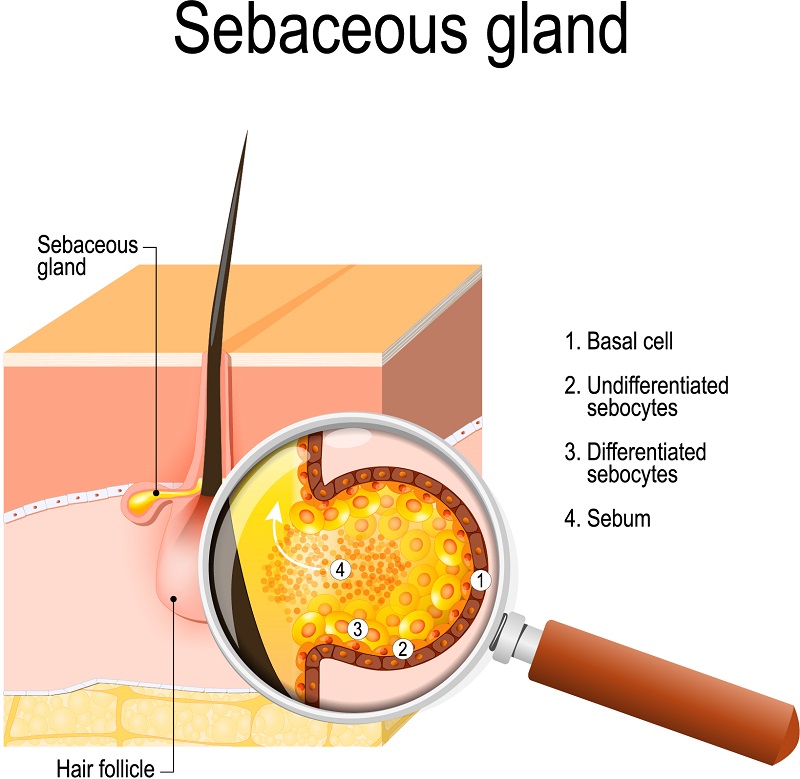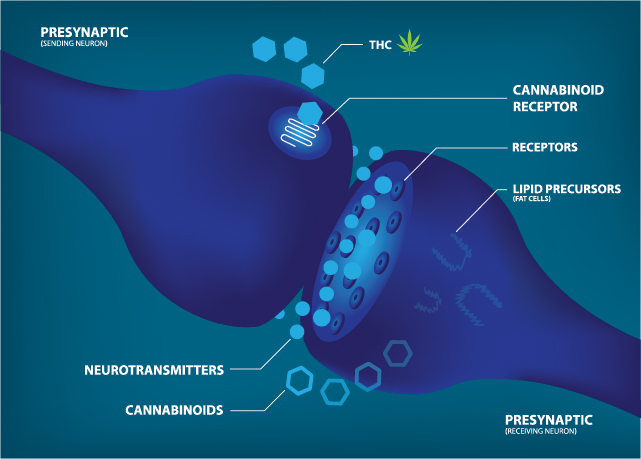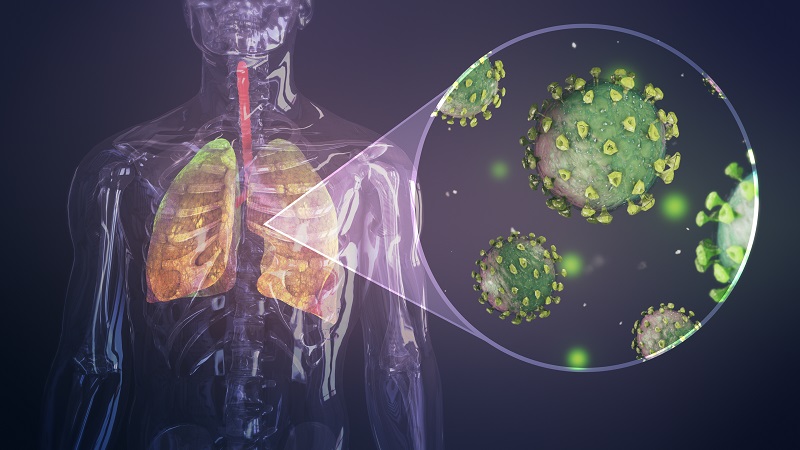Is There a Natural Alternative to Harsh Chemicals in Cosmetics?

From moisturizer to facial cream, eye serum to shampoo, cosmetics have become an integral part of our daily lives. According to an estimate, about 12 personal care products, including cosmetics, are used every day that contain about 168 different chemicals. While more than 13,000 chemicals are used to make cosmetic products, not all of them are regulated by national and international regulatory agencies.
Concerns over the harmful effects of some chemicals commonly used in many cosmetics and personal care products are growing. Sodium lauryl sulfate is one such chemical that many people wish to avoid, as it is known to be contaminated with a carcinogenic by-product. Parabens, formaldehyde, coal tar, and phthalates are other chemicals that are linked to a host of health issues, including allergies, organ damage, and cancer.
In this light, the spotlight has shifted to natural and safe products that are devoid of harsh chemicals while being highly effective. Products infused with CBD (cannabidiol) are growing in popularity, given their efficacy and safety.
History of cosmetics
Cosmetic products have been in use since ancient times. Some of the earliest records of cosmetics use date back to 7,000 years ago across different societies in the world. While rosewater, olive oil, and creams from beeswax were used by Romans, Egyptians are said to have used castor oil as a protective lotion.
There are no specific laws or guidelines in many countries regarding the use of preservatives in cosmetics. While more research is required to delve into the health impact of ingredients used in cosmetics and personal care products, available research shows the potential harm of such chemicals.
Common chemicals used in cosmetics
Some of the chemicals used in cosmetics include:
Parabens: These refer to a family of chemicals commonly used in cosmetic products as preservatives. Preservatives in cosmetics are used to prevent harmful mold and bacterial growth.
The most commonly used parabens in cosmetics include methylparaben, butylparaben, propylparaben, and ethylparaben.
Cosmetics that have parabens include moisturizers, makeup products, shaving products, and hair care products, among others. According to FDA guidelines, cosmetics must display a list of ingredients on their labels that helps consumers find out if a makeup or hair product contains a substance that they wish to avoid.
Formaldehyde: This is another common preservative typically used in moisturizing creams and other cosmetic products.
Fragrance chemicals: Many chemicals are used to impart pleasant fragrance in cosmetics such as shampoo, hair conditioner, lotions, rinse-off creams, shower gels, and perfumes. The chemicals most commonly used are limonene, hexylcinnamal, linalool, and butylphenylmethylpropional.
Heavy metals: Heavy metals are byproducts of the manufacturing of cosmetics that appear as impurities. These are formed when raw ingredients are exposed to environmental contamination or with a breakdown of ingredients. Although heavy metals such as arsenic, lead, cadmium, mercury, selenium, beryllium, and thallium are banned in cosmetics, trace amounts may be unavoidable even under good manufacturing practices.
Eye shadows typically contain magnesium stearate or zinc that are used as binders. Some heavy metals such as silver, gold, copper, or aluminum are used to create a brilliant metallic hue in eye shadows. A 2015 review on hazardous ingredients used in cosmetics found that cadmium, lead, mercury, copper, chromium, and nickel are the most commonly detected heavy metals in lipstick, shampoo, creams, lotions, and eye shadow.
Health effects of chemicals in cosmetics
Allergic dermatitis and acne
A key health effect of chemicals in cosmetics is allergic contact dermatitis. Preservatives and fragrances are clinically relevant allergens in cosmetic products. A study shows between 30 and 45% of allergies related to cosmetics are caused by fragrances. Some symptoms of allergic reactions are dermatitis, skin sensitivity, migraine, and asthma attacks.
Ingredients used in fragrances can penetrate the skin, enter the bloodstream after absorption, and get distributed to many other organs. Contact allergy is a long-lasting immune system reactivity. While swelling and rashes can appear with mild exposure, prolonged use can lead to chronic conditions marked by painful fissures and scaling of the skin.
Preservatives used in cosmetics are the other major cause of allergic dermatitis. These allergies typically appear on the neck, face, hand, and armpits. Other health problems such as hives, characterized by swelling and itchiness on the skin, are also linked to preservatives in cosmetics.
Quarternium-15, diazolidinyl urea, imidazolidinyl urea, and bronopol are some of the formaldehyde-releasing ingredients used in cosmetic products.
Cancer-causing
A study that sought to evaluate the concentrations of parabens in breast tumors detected the chemical in breast tumors. The study also highlighted that parabens have estrogen-like properties.
Researchers also found that formaldehyde is cytotoxic and negatively impacts cell differentiation and growth, gene expression, cell proliferation, membrane integrity, and cell viability. These processes are linked to cancer development.
Diethanolamine is another powerful chemical commonly used in soaps and shampoos. A study suggests that DEA is linked to increased risk of liver and kidney tumors in animal studies.
Organ damage
Heavy metals are known to act as slow poisons. Their slow release into the system can lead to their accumulation in the organs. At a low concentration, heavy metals can cause organ damage. Researchers have shown that continued exposure to cadmium and lead, even in low levels, are linked to chronic diseases of organs, including kidneys, liver, bone, and cardiovascular system.
Nickel, chromium, copper, and cobalt are some of the metals that are linked to allergic dermatitis.
Hormone-altering effects
A recent study that was featured in the Journal Environment International enrolled 143 women and collected their urine sample to test for environmental chemicals typically found in personal care products. Researchers found that low-level exposure to the cocktail of chemicals found in such products can potentially impact reproductive hormone levels. Researchers believe they had early indicators that parabens and related chemicals increase estrogen levels. Scientific American also stated that parabens mimic estrogen activity and disrupt hormone function, which can increase the risk of breast cancer.
Another 2018 study that tested the urine samples of children also corroborated these findings. Researchers found the urine samples had detectable levels of all hormone-altering chemicals in 90% of children. They concluded that girls exposed before birth to commonly found chemicals in personal care products could attain puberty earlier than those who are not exposed to such chemicals.
CBD in cosmetic products: A natural alternative
CBD or cannabidiol is present in cannabis plant species such as marijuana and hemp plants. Cannabidiol does not have the intoxicating properties of tetrahydrocannabinol (THC), the main intoxicating agent found in marijuana. CBD is extracted from the hemp plant and is typically mixed with a therapeutic oil such as olive oil, sesame seed oil, avocado oil, or essential oil to make cosmetic products such as facial cream, recovery lotion, sleeping mask, body oils, and eye cream, among others.
Benefits of using CBD in cosmetic products
Controls acne and is hypoallergenic – Some of the common skin conditions such as acne has been linked to harsh chemicals in cosmetic products. The main cause of acne is clogging of skin pores where bacterial growth occurs, causing inflammation and acne breakout. While chemicals such as parabens have been linked to acne and allergies due to their hormone-like activity, CBD is a naturally occurring product with no risk of allergies.
CBD fights inflammation while calming down irritated skin. CBD facial serum has been found to be beneficial in minimizing acne breakouts and redness associated with acne.
Studies show that CBD products such as eye serum, facial cream, or body oil have anti-inflammatory properties and can reduce excess oil production by modulating the oil flow from sebaceous glands.
Researchers evaluated cannabidiol’s sebostatic (ability to control excess oil production) and anti-inflammatory properties. It was found that topical CBD administration inhibited the overproduction of sebum while also exerting anti-inflammatory actions. These effects led to CBD being recommended for treating acne vulgaris.
Acne is typically treated with medications such as retinoids, which can have unpleasant side effects in the long term. In comparison, using topical CBD-integrated facial cream or serum is without side effects and the ideal option for those who wish to avoid medications.
Hydrates skin and relieves itching – CBD facial creams, recovery lotions, eye serums, and body oils help reduce skin dryness and hydrate the skin. Studies show CBD is also effective in reducing itching associated with excessive dryness and allergies.
Scientists discovered the endocannabinoid system (ECS) in the human body that is composed of endocannabinoids. These are neurotransmitters (chemicals in the brain that help in transmitting signals between nerve cells) that attach themselves to receptors known as cannabinoid receptors. The ECS system is believed to regulate multiple physiological processes such as eating, sleeping, mood, energy, fertility, immune system functions, appetite, and the way we feel pain and pleasure.
CB1 and CB2 are the two cannabinoid receptors that are distributed throughout the body. CB1 is concentrated in the brain while CB2 is found mostly in peripheral organs, gastrointestinal system, immune cells, and heart valves. Studies link allergic contact dermatitis and severe itching with lack of cannabinoid receptors.
In a study, when a CBD cream was administered on 22 patients who had chronic itching, researchers found that itching reduced by 86.4%, while there were no allergic symptoms.
Researchers postulate that CBD has the ability to turn off signals that transmit the ‘itching impulse’ from nerve endings of the skin to the brain. CBD-integrated cosmetic products such as face cream, body lotion, eye serum, recovery lotion have a soothing effect on the skin, in addition to relieving itching and dryness.
Help reduce signs of aging: Aging is a natural process associated with skin-related signs such as wrinkles, folds, creases, and fine lines. However, environmental pollutants, ultraviolet exposure, stress, or chronic illnesses can also result in premature aging that impacts skin health. These pollutants and the natural process of aging result in reduced production of skin health proteins such as collagen and elastin.
Aging is also linked to free radical damage. Free radicals are released in the body in small amounts during processes such as digestion and metabolism. These radicals are also found in radiation, environmental toxins, and pollutants. As they are highly reactive, they initiate a cycle of reactions (oxidation reactions) that end up damaging healthy cells. This chain reaction is also linked to the development of cancer, diabetes, and heart disease.
Antioxidants are substances that neutralize these free radicals and prevent cellular damage. While the body produces some amounts of natural antioxidants, these may be inadequate in fighting the effects of aging and pollutants.
CBD is known to have optimal antioxidant properties. CBD-integrated products can counteract the negative effect of free radicals and reduce age-related wrinkles, fine lines, and creases. Researchers have also found that CBD’s antioxidant activity is more as compared to strong antioxidants, including vitamins E and C.
Age-related signs such as wrinkles, sagging of skin, dryness are also due to reduced levels of collagen, the skin health protein. Scientists have shown that after 20 years of age, the production of collagen reduces by one percent annually. Collagen is one of the most widely distributed proteins in the human body, which being fibrous, binds and supports the skin, muscles, bones, tendons, and ligaments. Reduced levels of collagen can weaken these, leading to loose and sagging skin.
These effects are compounded by reduced skin oil production, leading to the dryness of skin. In a study, researchers have found that CBD promotes the production of collagen and also helps in healing fractures in joints. Its known moisturizing and hydrating properties help prevent excessive dryness.
Helps prevent the flare-up of autoimmune conditions: Harsh chemicals such as parabens, formaldehyde, and others have been linked to contact dermatitis. These can also aggravate autoimmune conditions in those predisposed to them, such as psoriasis and rosacea.
CBD helps reduce itchiness, puffiness, redness, and soreness commonly linked to auto-immune skin conditions such as rosacea, eczema, and psoriasis.
A study found that CBD stops keratinocyte proliferation that causes rapid skin cell build-up leading to redness, soreness, patches, and itching in psoriasis.
The overall effect of topical CBD facial creams, eye serums, body oils, or recovery lotions are:
- Enhanced collagen production
- Stress relief
- Anti-inflammatory effects
- Regulation of excess oil production that leads to acne
- Skin hydration
More articles:









